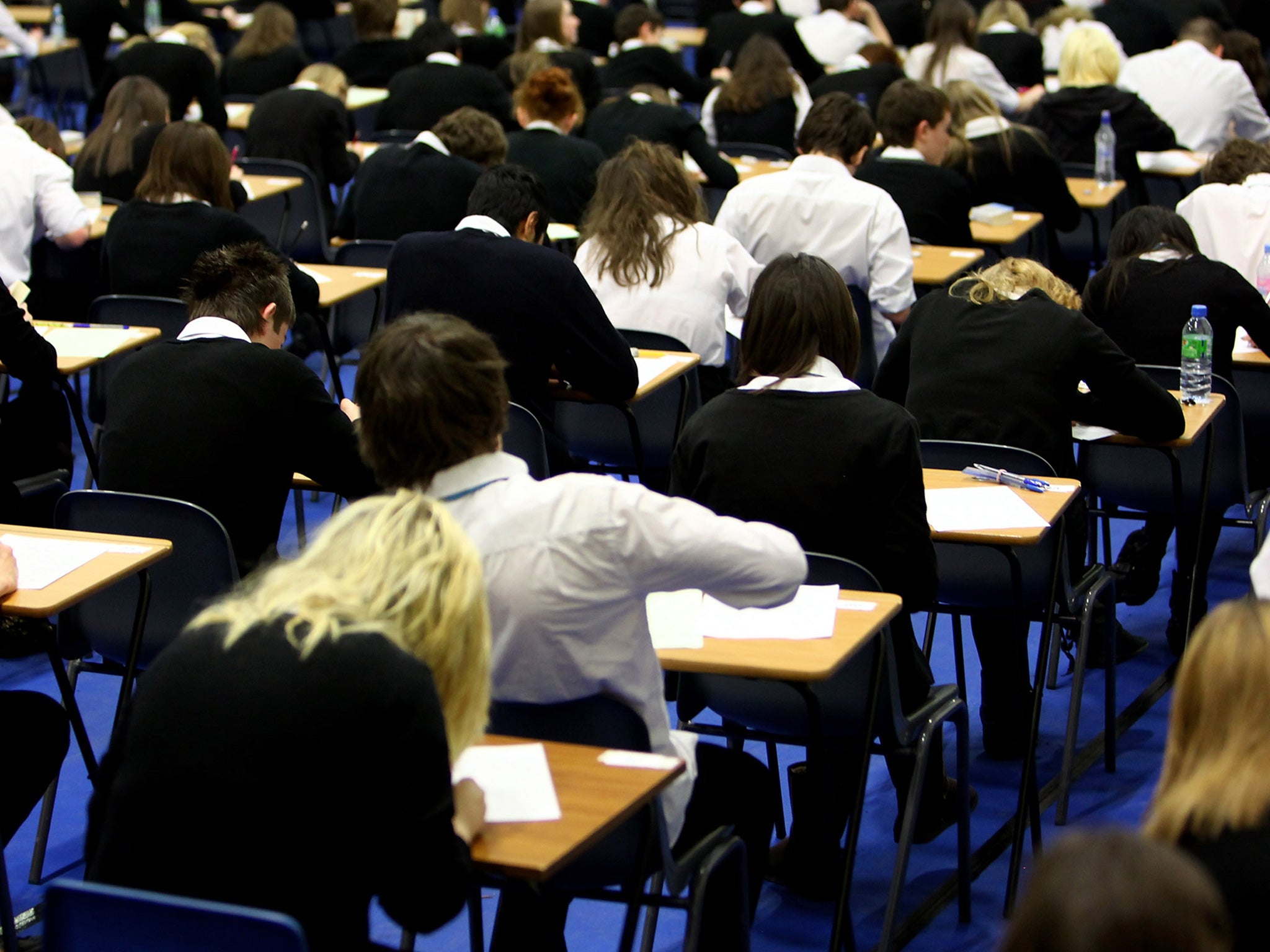A-level results will reveal shift in focus towards more traditional academic subjects
Figures will show a rise in the pupils opting for English, maths and science

Your support helps us to tell the story
From reproductive rights to climate change to Big Tech, The Independent is on the ground when the story is developing. Whether it's investigating the financials of Elon Musk's pro-Trump PAC or producing our latest documentary, 'The A Word', which shines a light on the American women fighting for reproductive rights, we know how important it is to parse out the facts from the messaging.
At such a critical moment in US history, we need reporters on the ground. Your donation allows us to keep sending journalists to speak to both sides of the story.
The Independent is trusted by Americans across the entire political spectrum. And unlike many other quality news outlets, we choose not to lock Americans out of our reporting and analysis with paywalls. We believe quality journalism should be available to everyone, paid for by those who can afford it.
Your support makes all the difference.A shift towards teenagers taking the more traditional academic subjects will be revealed when A-level results are published next week.
Figures will show a rise in the numbers opting for English, maths and science subjects as pupils seek to give themselves the best chance of obtaining a place at one of the country’s most selective universities. Maths is set to be confirmed as the most popular subject for students.
However, the increase does not extend to modern foreign languages which, according to chief exams regulator Glenys Stacey, are merely “holding their own” after a disastrous slump in take-up over the past decade which has seen the numbers taking French and German halve.
The figures will also show teenagers are shying away from subjects no longer rated by university admissions staff such as citizenship and general studies. In the case of citizenship, the subject has seen a 50 per cent slump in the number of candidates at GCSE.
Ms Stacey said the trend towards traditional academic subjects is likely to have been caused by government reforms - including the English Baccalaureate which ranks schools in league tables on the percentage of pupils getting top grade A* to C GCSE passes in English, maths, the sciences, a foreign language and history or geography.
As more pupils opt to study the subjects at GCSE so then more become eligible to take up the subjects at A-level. The “modest rises”, according to Ms Stacey, have been achieved at both GCSE and A-level.
Another factor is the list of “facilitating subjects” which show with areas of study are likely to help students secure a place at one of the country’s most selective universities.
“The subjects that are proving to be more popular this year are the traditional subjects,” said Ms Stacey. “We have seen modest increases in the sciences and, I suppose, what Russell Group universities would call ‘facilitating subjects’.
“There’s been a drop-off in subjects that have that have never been high volume subjects anyway and there are one or two noticeable subjects that have dropped, for example GCSE citizenship studies where we’ve seen a 50 per cent drop in take-up.”
She described the figure as “quite exceptional”.
She said that “a good number of students” were now thinking of their futures and what places they could secure at universities. Some academics have suggested that the hike in fees to £9,000 a year had prompted students to seek “value for money” and strive for a place at a top university..
“If your aspirations are to study some subjects at universities where there is a great deal of competition for places, we know that maths is sometimes an absolute requirement for some places and also is extremely well regarded,” said Ms Stacey.
GCSE results will also show a further decline in the number of 14-year-olds taking English and maths – a trend which started when former Education Secretary Michael Gove refused to allow resits of the exam to count towards schools’ league table positions.
Instead, they will show a rise in older pupils sitting the two subjects after failing to get a C grade at their first sitting.
Join our commenting forum
Join thought-provoking conversations, follow other Independent readers and see their replies
Comments